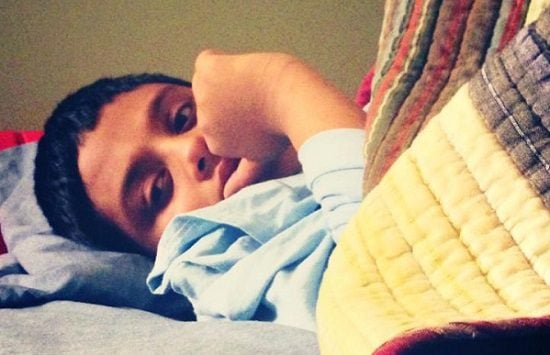 April 19, 2015 – Autism Awareness Month, Autism Truths #19
April 19, 2015 – Autism Awareness Month, Autism Truths #19
I’ve seen my fair share of hijab (headscarf) “fat suit” stories – you know, the ones where a woman decides she’ll wear a hijab for a month to see what it feels like to be a Muslim woman. (The 2015 version of the woman who dons a “fat suit” to feel what it’s like to be overweight.) The first one or two such articles I read impressed me. I mean it was a nice idea – wear a hijab for a period of time, gain some insight in how it feels to be a Muslim woman.
Except, the more I read such articles, the more its inherent problems became apparent to me — because wearing a hijab for a month gives you an idea of what it’s like to wear a hijab for a month. It doesn’t help one understand the depth and individualistic experience of every Muslim woman. The intention is usually good, but it’ll only get you so far. I think there is a difference between wanting to be supportive, understanding and respectfully curious about other people’s experiences, and taking on a physical aspect of their experience to get to “know” what it’s like to be them.
As long as you understand the difference between those two ends of the spectrum, then good on you.
I read an article at the beginning of the month about a mother, whose autistic son is nonverbal. She decided, for World Autism Day (April 2), to not speak the entire day to try and understand a little more what life was like for her son:
My inability to participate in conversations also helped me realize the isolation that comes with the inability to communicate verbally.When those around me told stories or talked about their lives, I had thoughts I wanted to contribute and couldn’t. I began noticing that fewer of those conversations were directed at me as the day went on. A friend at work even remarked that trying to talk to me was creepy because she felt like she was just talking to herself. I even noticed that some people even seemed to treat me as though I was suddenly less intelligent. By removing my ability to talk, I had also decreased the value of my thoughts, opinions, and even emotions. All those things still existed, just like all those things still exist in Finley’s mind. My experience was a powerful reminder that an inability to speak does not equal an inability to think or feel.
So many times I’ve yearned to know what is going on inside D’s head. What is he thinking. What does he see? How does he perceive things? What does he think of us? What makes him frustrated? Does not being able to speak make him feel trapped in his head? How does feel when he is sick? Why does not seek us out when he is sick? What hurts him? What makes him happy? What makes him anxious? What makes him feel loved? Does he feel ignored by us? Does he feel belittled by us? And on and on and on.
I thought a lot about what this mom did. And I admired her intentions. I thought about last year, when we discovered that D’s vision was extremely compromised in his right eye. There a whole lot of heartbreak and depth behind that story, which I don’t care to get into for the sake of my kid’s privacy. But what I can say was that the week after we figured this out, I spent much of my time keeping my right eye closed or covering it with a patch to get a sense of what he was seeing.
I didn’t learn much. Because at the end of the day, I just opened my eye and boom – my vision was fine. And so, when I read about this mom and her not speaking for a day, and the lessons she learned, I applauded her efforts to better understand her son. I wondered if doing the same would help me better understand my son. But, I doubt it.
Because I don’t want to just understand him. I’ve already made it my prime parenting job to understand him as best possible. Even at the risk of being unfair to my other children sometimes, I spend so much of my waking life trying to understand D. But it’s not enough. It’ll never be enough. Some individuals with autism have found ways to express their innermost thoughts, whether through typing, or artistic endeavors, blogging, RPM and many other ways. But we’re not there yet with D. Not by a long shot.
The truth is, I want to know him. Really, really know what he feels, what he thinks, what he senses, what he endures, what he wants to convey, what he wants to say.
God, if just for one hour I could know. But it’s for now, it’s an unattainable truth.











